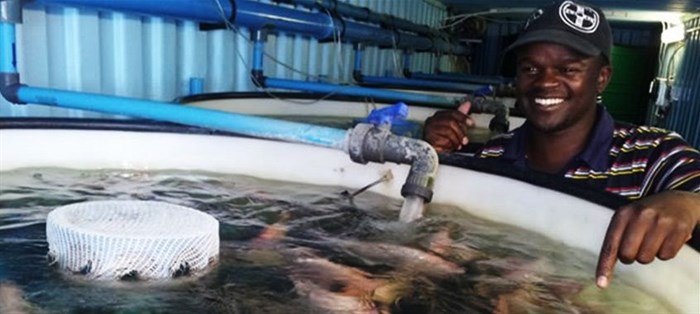Aquaculture skills in the spotlight
The study, which was commissioned through SAIMI’s Operation Phakisa skills working group for aquaculture, is part of a strategy to develop a workable skills framework for the sector. The study aimed to set a baseline of current skills levels in order to measure the impact of training interventions, to identify the scarce and critical skills needed in the sector, and to guide planning for skills development to support current and future demand, including the development of new qualifications.
The next step is for the aquaculture skills working group to prioritise and develop an implementation plan which will be driven by SAIMI and the Department of Agriculture, Forestry and Fisheries (DAFF). This work is currently underway.
Survey respondents
Over a hundred potential organisational survey respondents were approached, representing a spread of aquaculture farms, industry specialists, government departments, training providers and aquaculture member associations. A total of 171 interviews were conducted across 16 farms visited, with marine aquaculture making up 58% of respondents and freshwater contributing 42%.
As the biggest mariculture producer, the abalone industry was most represented, followed by oysters and mussels, and salmon and cob. In the freshwater sector, koi, tilapia, trout and catfish were equally represented, with additional contributions from freshwater industry experts.
Respondents were drawn from all occupational levels – from managers and professionals to technicians, skilled tradesmen and those engaged in elementary occupations.
Priority interventions
The study concluded that a number of high priority interventions should be implemented with immediate effect to address skills shortages and deficits. These recommendations will form the basis of a skills plan, which will guide the development of relevant courses and link education and training providers with aquaculture organisations to help them access the skills they need to succeed.
For starters, a lack of formal schooling means a large percentage of aquaculture farm workers may have the practical on-the-job competencies but lack adequate functional literacy and numeracy to attain further education and training. This could be bolstered through appropriate Adult Education and Training programmes, which is an essential first step if they are to be ready to access the aquaculture sector qualifications once these have been developed.
Human resources practitioners and training managers also recommend training in practical farm or mechanical skills, furthering workers’ knowledge of basic chemistry and biology, as well as general skills such as communication and computer skills for report writing. More agricultural extension officers who specialise in aquaculture are also required to help organisations improve their production, while mentorship programmes should be put in place to assist with skills transfer and succession planning.
Most farm workers indicated a desire to understand the business as a whole in order to understand how their role fits into the bigger picture and to discover opportunities to grow into other roles.
Farmers and managers across the sector also identified supervisory and management skills – including people and business management – as areas of weakness, which could be addressed through relevant training programmes adapted for the sector.
Further up the educational chain, veterinary practitioners who specialise in aquaculture are incredibly scarce, as there is currently no channel for specialising in this field. Investigating the addition of aquaculture-specific coursework to the veterinary science degree would help to fix this shortage.
Barriers to learning
For many, however, skills development is hampered by a lack of finances and study time as well as access to information about the funding and learnership opportunities available in the sector.
Building positive relationships with aquaculture organisations will include sharing information about opportunities available through their relevant SETAs and the benefits that can be unlocked by paying their skills development levies.
Scarce skills
In the medium term, the development of scarce skills will fall under the spotlight. Reported areas of scarcity include technical skills, research funding for areas such as feed manufacturing, aquatic animal knowledge and HACCP compliance among others.
Furthermore, funding for short courses on soft skills such as diversity training, time management, budgeting and problem-solving must be made available to organisations in the industry.
Towards economic growth
The Western Cape has the largest aquaculture industry in terms of full-time employment in South Africa, followed by the Eastern Cape, Limpopo and Mpumalanga. Training interventions will be conducted as a priority in these provinces in order to have maximum benefit for the sector and the greater South African oceans economy as a whole.
Issued by Good News Lab PR Agency on behalf of SAIMI
















